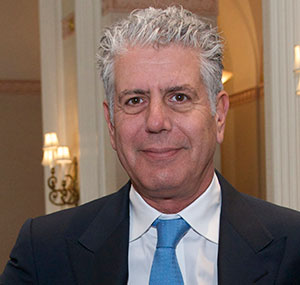 I didn’t know Anthony Bourdain, but felt like I did in one small important way. In him, I saw a drinking alcoholic with a front-stage vigorous attempt to do it successfully. His was a fantastic life-embracing show, with drinking taking a prominent role in the joie de vivre, and sometimes that made it hard for me to watch.
I didn’t know Anthony Bourdain, but felt like I did in one small important way. In him, I saw a drinking alcoholic with a front-stage vigorous attempt to do it successfully. His was a fantastic life-embracing show, with drinking taking a prominent role in the joie de vivre, and sometimes that made it hard for me to watch.
When he threw back shots, indeed got wasted, I saw a fellow alcoholic living dangerously whereas most viewers, I imagine, saw “a man who knew how to drink, knew how to live.” His state of mind will be called depression, and who can argue with that in the wake of his suicide. But can we please, people, start connecting the dots to alcoholism (also a disease of the mind), at least when it is screamingly evident?
Perhaps I should not presume to think I know, but I can at least invite the conversation where it is uncomfortably and amazingly absent. Did alcoholism (which brings depression or ineffectively “treats” depression) ultimately take down Bourdain?
Alcohol is a drug. “Drugs” and “alcohol” remain separate in conversations about addiction, like a “bad sister” doing outrageous unthinkable things while the “good sister” quietly nurses a prom hangover and shame from a blackout.
[Read more…] about Can we talk about alcoholism and Anthony Bourdain?